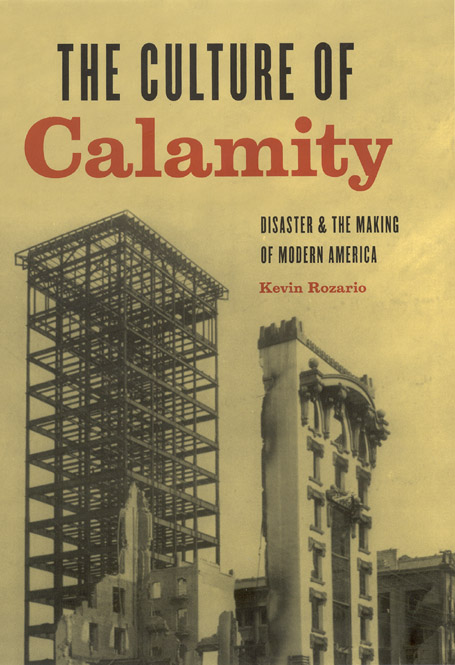Review: Rozario, The Culture of Calamity

It is always interesting to see the kind of reception books about America receive overseas, which is why a recent review of Kevin Rozario’s The Culture of Calamity: Disaster and the Making of Modern America in London’s Daily Telegraph caught our eye. The book is a comprehensive survey of the various ways both natural and manmade disasters have shaped American culture, but reviewer Lucy Moore also devotes much of her article to Rozario’s explanation of how America’s rich and powerful have been able to exploit these disasters to meet their own ideological and economic ends. Moore writes:
As Rozario shows, the resilience and optimism with which Americans have traditionally met adversity have become increasingly susceptible throughout the 20th century and into the 21st to manipulation. All too often, disaster mitigation has been subordinate to the demands of development. From 1927 onwards in the Mississippi River basin, government relief acts have funded vast new areas of construction, often on wetlands which used to act as flood barriers. Flooding, when it inevitably reoccurs, is far more severe in areas where artificial defenses have been built. As Rozario observes, “if calamities enable progress, ‘progress’ itself often seems only to increase human vulnerability to increasingly severe calamities.…”
Most alarming of all, Rozario shows how neatly September 11 served President Bush’s political agenda. A year before the bombing, the Project for the New American Century submitted a paper setting out its ambitions for preserving American “pre-eminence” abroad and consolidating Republican power at home. The starting point was war with Iraq, but the signatories—who included Rumsfeld, Wolfowitz, Cheney and Jeb Bush—regretted that “absent some catastrophic and catalysing event,” their aims might take many years to fulfill. Progress and catastrophe indeed.
Read an excerpt from the book.